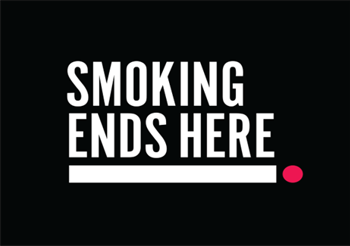Liverpool welcomes experts to tackle high rates of oral cancer
Wednesday, 16 July 2025

Experts in oral cancer from all over the world are coming to Liverpool this week to work on tackling this group of deadly diseases. The International Association of Oral Oncology, which is chaired by Liverpool surgeon Professor Richard Shaw, is hosting its annual conference at the ACC, and will welcome leading cancer doctors from as far afield as Australia and Brazil.
Oral cancer is a type of cancer affecting the tissues of the mouth or throat, and is part of a group of cancers known as head and neck cancers. Some areas in Cheshire and Merseyside are among those with the highest rates of oral cancer in the country, including St Helens, Wirral, Liverpool and Knowsley. While there are a number of causes and risk factors for oral cancer, certain activities such as smoking or drinking high levels of alcohol can make it more likely. This is particularly true for people who do both: individuals who both smoke and drink heavily are over 17 times more likely to be diagnosed with oral cancer than people who do neither. We know that smoking and drinking unsafe levels of alcohol are more common among our poorest communities, and rates of oral cancer are higher in areas with more social deprivation.
Director of Public Health for Liverpool, Professor Matt Ashton, said:
“There is amazing work taking place in Liverpool to reduce smoking and heavy drinking and encourage people to live healthier lives. However, diagnostic rates for oral cancer have been rising here, in line with national trends.
“The International Association of Oral Oncology conference is another chance to shine a spotlight on the issue, and remind people of the support that is on offer to help them quit smoking and reduce alcohol consumption.”
The Directors of Public and Population Health in Cheshire and Merseyside, alongside the NHS, are working hard to tackle these issues and reduce health inequalities across the sub-region.
Professor Ian Ashworth, Director of Population Health for NHS Cheshire and Merseyside said:
“It's really significant that this conference is being held in Liverpool, as some areas in Cheshire and Merseyside continue to have stubbornly high rates of oral cancer. This is often associated with factors like smoking and drinking, so the best thing we can do to bring those rates down is to help people live healthier lives. We are already working hard to do this in a number of ways, for example through our All Together Smokefree programme, which aims to achieve a smokefree Cheshire and Merseyside and a smokefree future for every child.”
Mortality rates for oral cancer are high when compared to other types of cancer, and are 60% higher in the most deprived areas compared to the least. Furthermore, rates of diagnosis have increased by over a quarter in the last two decades, and this trend is reflected across Cheshire and Merseyside.
Professor Richard Shaw said:
“Not only is this conference a chance for delegates to visit and enjoy our beautiful city, it is also a great opportunity to showcase the innovative work going on to treat oral cancer in the region, for example at the Liverpool Head and Neck Centre. Oral cancer is a devastating disease, often fatal, and sometimes resulting in debilitating challenges such as problems with eating or speech.”
Symptoms of oral cancer include a non-healing sore, persistent pain or a growth in the mouth and it is important that anybody experiencing these should visit their doctor or dentist as soon as possible. Martyn Delaney, 72 from Chester, was treated in Liverpool after being diagnosed at a routine dental appointment:
“I was just at my regular check up with the dentist when he spotted something on my tongue. He referred me to hospital and it turned out to be a cancerous tumour, which had already spread to some of the lymph nodes in my neck. I was sent to the centre in Liverpool where I had surgery on my tongue and neck, followed by a course of chemotherapy and radiotherapy, after which I thought I’d put it all behind me.
“Then in 2021, at another regular check up it was found to have come back in my upper palate. This time it was much harder, I had to have a skin graft which involved taking some skin from my arm and putting it inside my mouth, they had to break my jaw to do the surgery, and I spent weeks in hospital unable to eat or speak.
“I’ll never know if smoking caused my cancer, or whether it was just bad luck. I did smoke when I was younger, everybody did back then, but I gave up over 30 years ago now. One piece of advice I would give to everybody is to make sure you have regular check ups, and never ignore any symptoms, even if they seem very minor. I think we British people worry about being a nuisance, but I say be a nuisance, and get it checked out,”
Anyone experiencing symptoms of oral cancer should visit their GP or dentist as soon as possible. To find out more about reducing your risk of oral cancer by stopping smoking, visit www.smokingendshere.com